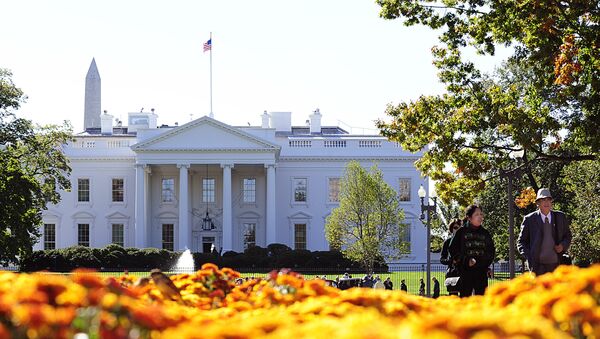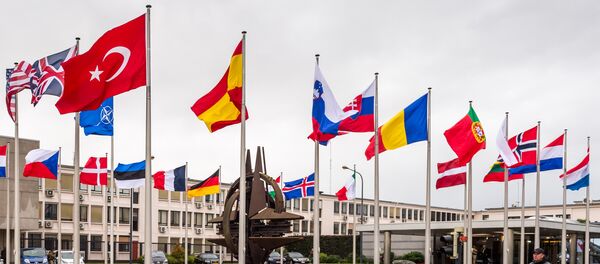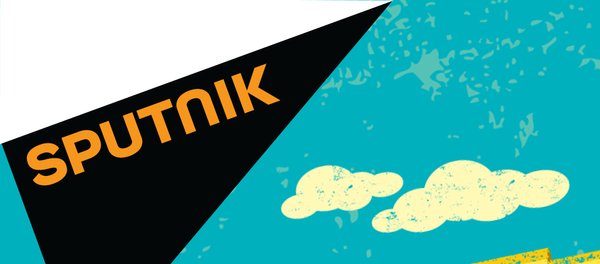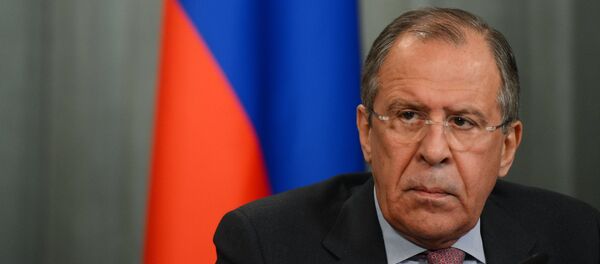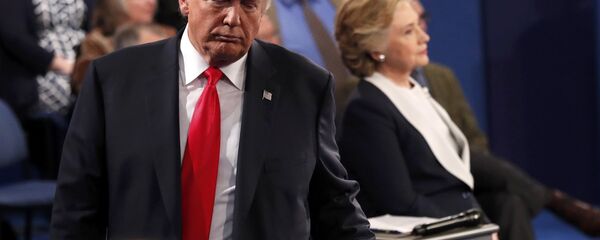The decision of the US voters on Tuesday, viewed in the large, looks like the choice between breaking away from mainstream US lines, including on transatlantic relations, proposed by Republican nominee Donald Trump, or keeping things as they are, as suggested by Democratic candidate Hillary Clinton.
The US presidential election this year comes at a crucial time for the European Union – its long-time ally, which has found itself in a vulnerable spot amid unprecedented challenges posed by Brexit, a devastating migrant crisis bringing thousands of overloaded boats to its shores, and security threats amid the rise of extremism.
"Relations of the United States with Europe are like relations with a close relative. Europe is now going through hard times it has problems it has never had before. But if you look at the history of Europe, it's always ups and downs," Toby Gati, president of TTG Global LLC Strategic Advisory Services and member of the Council on Foreign Relations, told Sputnik.
"My sense is that there are European leaders now who feel that these problems need to be tackled. Some problems, like migration crisis, come from their own mistakes," she added.
CANDIDATES ON BREXIT
"People want to take their country back. They want to have independence in a sense. … They want to take their borders back," Trump said during his visit to Scotland after the referendum.
Clinton tried to withhold Britons from voting for Brexit, and emphasized repeatedly that Europe needs to remain united, with the United Kingdom being its essential part.
Disappointed with the results on June 23, she rushed to make sure that the United States kept its "steadfast commitment to the special relationship with Britain and the transatlantic alliance with Europe."
The commitment could become even more steadfast, reinforced by the women’s solidarity between the new UK Prime Minister Theresa May and Clinton in case of her victory.
CANDIDATES ON TERROR THREAT
Following the attacks on France and Belgium, Trump sharply criticized the European leaders for not doing enough to combat the flow of terrorists across the borders. He repeated the idea that he had previously voiced on the need to stop immigration to the United States from "any nation that has been compromised by terrorism" and called Europe not a safe place.
"I don't think that Europe is a safe place. No, I don't. I think there are a lot of problems in Europe that are very, very severe. … When you look at Brussels, when you look at the way they've handled things from law enforcement standpoints, when you look at Paris, when you look at so many other places, no, it's not," he told ABC in March.
The Democratic nominee, in contrast, often speaks on the need to support the US allies in Europe in hard times they are going through. She pushes forward the idea of improving intelligence sharing and counterterrorism coordination between Brussels and Washington, and claims that European countries should show flexibility in enhancing their border controls and monitoring the returning foreign fighters when circumstances require.
CANDIDATES ON NATO
The GOP candidate calls the alliance obsolete in today’s security environment and questions the very necessity of its continuation given the high membership costs.
He also criticizes the failure of the European US allies to meet their financial obligations as NATO members and calls it an open disrespect "for our leadership and our country." He pledged to make Europe pay more for the US umbrella protecting them, and said the United States might leave the alliance in case it does not happen.
Clinton, on the contrary, considers NATO "one of the best investments America has ever made, from the Balkans to Afghanistan and beyond" and vital for pursuing the US interests in Europe.
One of the main US interests in Europe, as viewed by the Democratic candidate, is to deter Russia. To this end, she pledged to expand the US missile defense systems in Eastern Europe and to do more to strengthen allies, particularly against the alleged "Russian aggression."
Such statements, obviously, resonate with many Europeans, who do not want to lose their main security guarantor.
"What Trump said about America's engagement in NATO is in considerable difference to the present reality. … The Western alliance is important for both parts [US and Europe], and will remain so. The fact that we are determined to protect our member collectively serves as a war-preventing deterrence. … NATO is one of the pillars of stability in the Transatlantic area," Hans-Friedrich von Ploetz, former Germany's Representative to NATO, told Sputnik.
SINK OR SWIM
"I don't think the relations between the European Union and the United States will be affected at all if Hillary Clinton wins. It will be the continuation of the same policy towards the European Union and the Western Europe that president Obama has pursued," John Mearsheimer, a renowned American political scientist and the author of the theory of offensive realism, told Sputnik.
The victory of Trump, however, would definitely mean deterioration of Washington-Brussels ties, but the theorist does not give the candidate many chances.
"If Donald Trump wins, though I do not think that's going to happen, I think the United States will probably get into more hostile relations with Western Europe. He believes that Western Europeans are ‘free-riders,’ relying on the United States to provide security for them. … Trump would send a pretty hostile message to the Western Europeans," he said.
Austria's former chancellor Wolfgang Schuessel and Professor of Russian and European Politics at the University of Kent Richard Sakwa, speaking to Sputnik, also predicted few or no changes in the EU-US relations.
"I don't see any room for change now," Angela Stent, Director of the Center for Eurasian, Russian and East European Studies at Georgetown University, told Sputnik, adding that Clinton’s victory would mean "a continuation of what we had before," and that "Trump has almost no chance by now."
The candidates, however, run neck-and-neck, with Trump being 1 percent ahead of Clinton, according to the ABC News/Washington Post poll as of November 1.
The US presidential election will be held on November 8. According to the latest ABC News/Washington Post, Clinton retains a slim lead over her Republican rival in the final push, but her 4-point margin indicates the race is as tight as ever.

